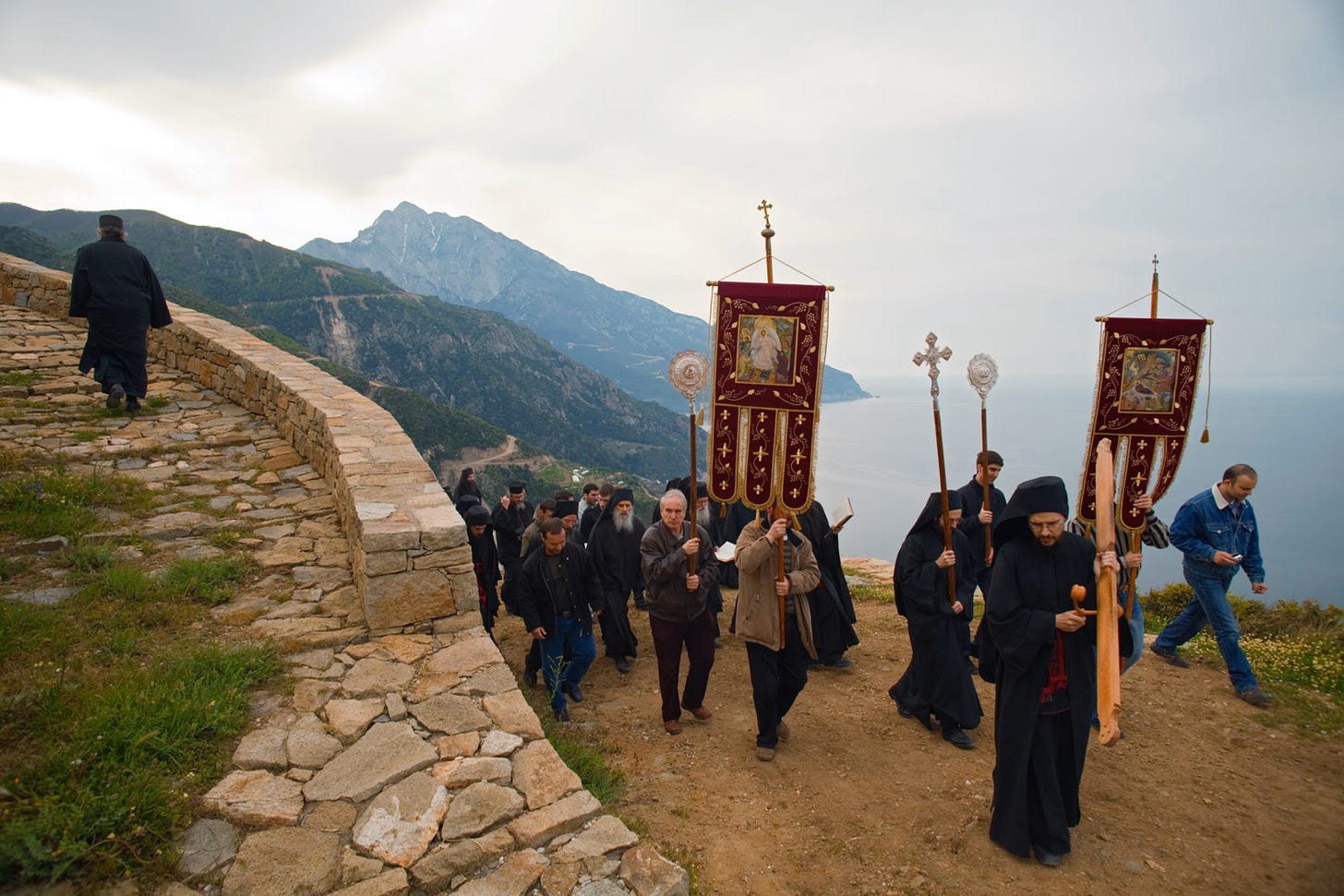Books of Jacob | II. Book of Sand, Chapter 10
"all of nature is taking part in this process of mourning those gods"
In this moment, Antoni Kossakowski realizes that the plaintive rumble of the sea is a lament, and that all of nature is taking part in this process of mourning those gods of whom the world has been in such desperate need. There is no one here. God created the world, and the effort of doing so killed him. Kossakowski had come all the way here to understand this.
(Tokarczuk, Books of Jacob, p. 761-760)
Where is the here to which Count Antoni Kossakowski wandered to discover the disenchantment of the world, or even the death of God a century before Nietzsche?
It is Mount Athos, an Orthodox Christian spiritual centre since 1054. Women and children are forbidden entry to this 'Holy Mountain'. Its influence has spread across the Other Europe of the East, including the scenes of The Books of Jacob in Poland-Lithuania, Ukraine, Wallachia, Moldova, and Russia. But it is here that Count Antoni Kossakowski becomes a strange, pagan-Christian-Jewish unorthodox heretic.
In Chapter 10, Count Antoni Kossakowski—who will also be known through the novel as Moliwda—sails to Develiki, and basks in the warmth of Southern Europe, the home of classical Greek culture. He reflects, in this Book of Sand, on the sands of destiny:
Here Destiny is still in effect, the Greek version of Fatum that sets people in motion, marking out their paths like little strings of sand that flow along a dune from top to bottom, creating arabesques and other figures of which the finest artist would hardly be ashamed, twisting, chimerical, exquisite. (p. 764)
He has jumbled thoughts on sin, religion, pagan gods, and a strange woman called Irena, who is probably Wallachian or Serbian. He revels in the Mediterranean heated earth and its herbs, and imagines “the Greek gods living here once, the very same ones he learned of at his uncle’s house” (p. 761). These pagan thoughts lead him to desecrate the Holy Mountain, and to flee to Smyrna, where he meets Nahman.
He also falls in love with a Christian woman. One of many brief, destructive romances of escape in Moliwda’s life. But this romance also brings him into contact with the abduction into slavery of Anna Popielawska, and the payment of a ransom to Ottoman people traffickers of the eighteenth century. Anna however betrays him.
Kossakowski broods on his disillusionment and remembers another romantic betrayal from his childhood.
“The flight of his lover, the sea, and this memory from his childhood make Moliwda feel frighteningly lonely. His only relief will come, not too long from now, from the Wallachian Bogomils… And all this has happened because Moliwda is fully convinced by now that his life has reached its natural conclusion, and that there won’t be any other world.” (p. 756)
But the new life of the mysterious Moliwda has only just begun.
For paid subscribers below I have some additional sources and notes to enrich your Slow Read.
chat question - on the Western memory of pagan antiquity
character - on Antoni Kossakowski or Moliwda
context - European enchantment with antiquity and Polish culture.
If you have not already done so, please upgrade your subscription, and read on to get more from your Slow Read of The Books of Jacob. And my voiceover of this post!




